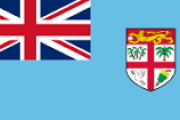PSIDS Statement by Ambassador Satyendra Prasad, Permanent Representative of Fiji to the UN/Chair of the Pacific Small Island Developing States
ECOSOC Special Meeting on SIDS, LDCs and LLDCs: Understanding the vulnerability of Small Island Developing States (SIDS) - Impact of COVID-19 and road to recovery.
New York, Friday 23 April 2021
President of ECOSOC, Amb. Munir Akram,
The Prime Minister of Antigua & Barbuda & Chair of AOSIS,
The Prime Minister of Barbados,
Excellencies, Ladies and Gentlemen.
Thank you for inviting PSIDS to participate in UN-ECOSOC’s special event on understanding the vulnerability of small island developing states. I am pleased to offer remarks on behalf of the Pacific Small Island Developing States, namely, Kiribati Marshall Islands, Federated States of Micronesia, Nauru, Palau, Papua New Guinea, Samoa, Solomon Islands, Tonga, Tuvalu, Vanuatu, and my own country, Fiji.
Mr. President,
We join fellow Small Island Developing States in reminding the international community that SIDS cannot be at the back-end of the vaccine queue. We need COVAX and Act Accelerator to do what they were created to do: Make vaccine equity a reality.
While large economies and many large developing states are already moving to economic recovery; rebooting their economies with considerable low-cost stimulus investments, PSIDS economies remain in deep freeze. We have a difficult time accessing finance, and when we do we pay a punishing premium. Meanwhile, tourism dependent economies cannot open their tourism sector until the immunization of our population is complete. PSIDS employees working on global fishing fleets; those who are working abroad on work visas and remitting vital resources remain in deep freeze.
The compounding impacts of both the climate crisis and the COVID pandemic have resulted in all dimensions of the vulnerabilities of PSIDS being further elevated. This is worrisome in both the short and the long term.
Mr. President,
Concessional funds are indispensable to PSIDS. They need to be more clearly specified for SIDS. SIDS cannot be expected to compete endlessly with larger developing states for access to the same development funds. We also need funds that are dedicated for both microstates; as well as the infinitely more vulnerable atoll states of the Pacific such as Kiribati, the Marshall Islands and Tuvalu. We also note with concern that Small Island Developing States are unfairly being graduated out of the LDC category.
We hope that the World Bank’s IDA will be replenished and that vulnerable middle-income SIDS will be able to access these funds speedily. This is the only forward-looking financing facility available to SIDS. And yet several of PSIDS have no access to these.
Time is right to introduce ultra-long-term concessional financing instruments that allow SIDS to achieve their ambitious targets beyond 2050. That will ease the strain of servicing debts, and lock in low interest rates over the longer term.
Third, multidimensional variability indexes should be used to determine access to concessional financing. All the PSIDS are among the most vulnerable countries across the world. We are more vulnerable to climate catastrophes, pandemics, external economic shocks. One catastrophic event alone can wipe out decades of development within a matter of hours. Cyclone PAM wiped out 70% of Vanuatu’s GDP only a few years back; and wiping out some 10 years of development gains. We believe a multidimensional vulnerability framework should be at the heart of global development policies and programs. In addition, we are suffering from slow-onset events. For example, because of the warming Ocean, fish has started to migrate, depriving some of us of a valuable source of income.
Fourth, SIDS are disadvantaged by the failure to account for their environmental and ecological services. The PSIDS 20 million plus square kilometers of ocean needs to be reflected and accepted in their national accounts. This is crucial and realizing the potential for blue recovery and development of sustainable blue economy.
PSIDS welcome the US commitment to net-zero as well as its blue commitments announced yesterday. We welcome as well, its new SALPHIE program and look forward to working with the US.
Mr. President,
Climate Finance is not working for PSIDS. For each dollar we have received in form of climate finance, we have lost more than 20 due to the climate crisis. The climate crisis puts tremendous pressure on our ability to meet our SDG targets. It is the major source of our debt burden. It may fundamentally undermine our security.
The challenge of climate finance for SIDS is at one with the challenge of financing pandemic recovery. The international community needs to ensure that PSIDS on the frontiers have special and speedy access to financing. The largest emitters can make a huge difference by supporting PSIDS to kick-start the blue and green recoveries. How can we chart a decade of action if we begin it laden with crippling levels of external debt? How can we choose between funding a sustainable recovery, including our climate commitments, and upholding vital networks of recovery for good cohesion including in promoting inclusive recovery and supporting the elderly, children, and those living with disabilities.
The PSIDS has called on the UN Development System to provide joined-up, scaled-up and targeted support to the PSIDS region and to its sub regions in response to all the areas of their elevated vulnerabilities.


